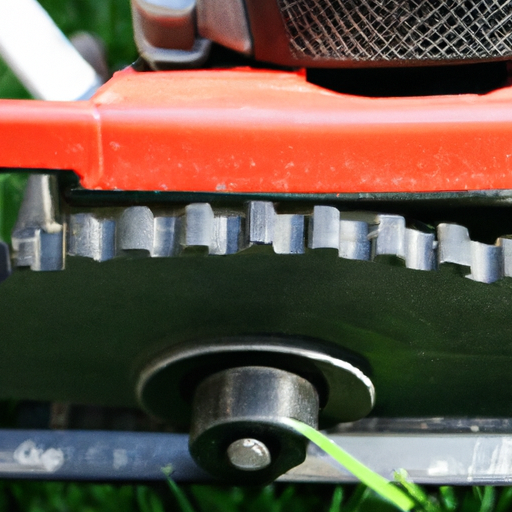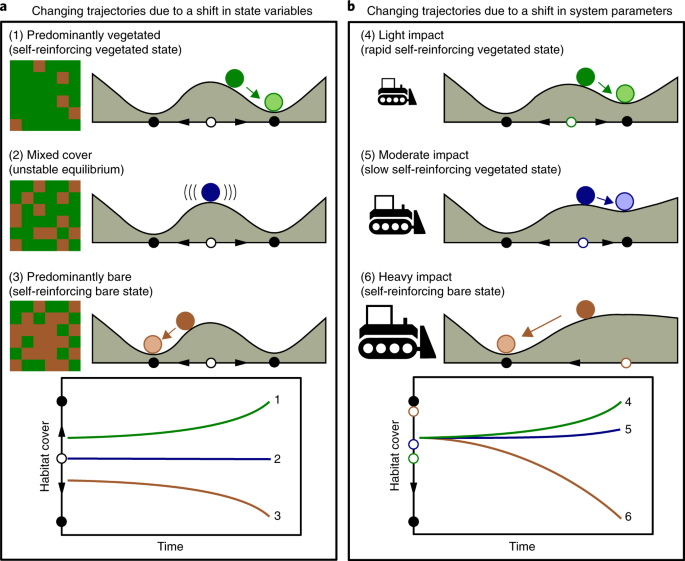Imagine being able to peacefully mow your lawn on a sunny afternoon without disturbing your neighbors or shattering the tranquility of your own backyard. In recent years, concerns over noise pollution caused by traditional gas-powered lawn mowers have led to a growing demand for quieter alternatives. Enter the concept of reducing noise levels in lawn mowers. This article explores the innovative technologies and advancements that aim to bring a quieter, more serene mowing experience to homeowners everywhere. Discover how these noiseless lawn mower sound levels are being achieved and the benefits they offer, allowing you to enjoy the serenity of your lawn like never before.
I. Choosing a Quiet Lawn Mower
Choosing a lawn mower with low noise levels is essential if you want to maintain a peaceful environment while working in your yard. When researching noise levels, it’s important to understand the decibel (dB) scale. The lower the decibel rating, the quieter the lawn mower will be. Look for models that have noise ratings below 85 dB for a significantly quieter experience.
Comparing different models is also crucial in the search for a quiet lawn mower. Take note of the noise levels specified by manufacturers and compare them side by side. This will help you identify the quietest options available in the market. Don’t forget to consider other factors such as cutting power, durability, and ease of use when comparing models.
Reading customer reviews can provide valuable insights into the noise levels of different lawn mowers. Look for feedback from customers who have already purchased and used the models you’re interested in. They can provide first-hand information about the noise levels and overall performance of the lawn mower, helping you make a more informed decision.
II. Maintaining and Cleaning Your Lawn Mower
Regular maintenance is key to ensuring your lawn mower operates at its best and produces minimal noise. Follow the manufacturer’s recommended maintenance schedule, which typically includes tasks like changing the oil, inspecting and replacing spark plugs, and cleaning or replacing the air filter. By keeping your lawn mower in top condition, you can help reduce noise levels and ensure its longevity.
Cleaning the exhaust system is another important aspect of maintaining a quiet lawn mower. Over time, debris can build up in the exhaust, causing it to become clogged and potentially increasing noise levels. Regularly inspect and clean the exhaust system to prevent this issue. Consult the owner’s manual for specific instructions on how to properly clean the exhaust.
Lubricating moving parts is also essential for noise reduction. Friction between parts can generate unnecessary noise. Apply lubricant to the necessary components, such as wheels, axles, and cutting blade pivots, to minimize friction and reduce noise. Be sure to use lubricants recommended by the manufacturer for optimal results.
III. Adjusting Blade Height
The height of your lawn mower’s blades can significantly impact noise levels. Understanding the noise impact of different blade heights is crucial for maintaining a quiet environment. Lowering the height of the blades can increase noise levels, as the mower cuts through the grass more forcefully. Conversely, raising the blade height reduces noise levels as the cutting action becomes less aggressive.
Proper blade height is determined by the type of grass you have in your lawn. Research the recommended cutting heights for your specific grass type. Adjust the blade height accordingly to ensure an optimal balance between noise reduction and maintaining a healthy lawn.
Different grass types may require different blade height adjustments. For example, cool-season grasses typically thrive with a higher cut, while warm-season grasses may be cut shorter. Adjust the blade height accordingly to ensure the best results for your lawn.
IV. Using Proper Cutting Techniques
Using proper cutting techniques can contribute significantly to reducing noise levels when mowing your lawn. Instead of rushing through the cutting process, take a slow and steady approach. This allows the blades to work more efficiently, reducing the strain on the mower and minimizing noise.
Avoid overloading the lawn mower with excessive grass clippings. Cutting too much grass at once can strain the engine, increasing noise levels. Regularly empty the grass catcher to maintain optimal performance and minimize noise.
Minimizing contact with obstacles is another important technique for reducing noise levels. Constantly hitting rocks, tree roots, or other hard objects can cause excessive vibration and noise. Be mindful of your surroundings and try to maintain a clean and obstacle-free mowing path.
V. Employing Noise Reduction Accessories
There are various accessories available that can further reduce the noise levels of your lawn mower.
Installing a muffler specifically designed for your lawn mower can significantly decrease noise levels. The muffler helps to quiet the exhaust sound and is a relatively easy accessory to install. Make sure to choose a high-quality muffler that is compatible with your specific lawn mower model.
Noise reduction blades are another accessory that can help minimize noise. These blades are designed to dampen vibrations and reduce noise levels during cutting. Look for noise reduction blades that are compatible with your lawn mower and consider incorporating them into your mowing routine.
Noise dampening pads can be placed on the deck of your lawn mower to absorb vibrations and reduce noise. These pads help to create a buffer between the mower and the ground, minimizing noise transmission. Research and choose noise dampening pads that are suitable for your specific lawn mower model.
VI. Time and Location Considerations
Choosing the right time to mow can significantly impact noise levels. Avoid mowing during early mornings or late evenings when people are more likely to be asleep. Opt for mid-morning or mid-afternoon time slots when noise is generally more acceptable. Remember to comply with any local regulations regarding noise restrictions during specific hours.
Consider your neighbors when mowing your lawn. If you have close neighbors, try to minimize noise levels by using noise reduction techniques and scheduling your mowing sessions when they are least likely to be disturbed. Good communication with neighbors can also help establish mutual understanding and cooperation when it comes to noise reduction efforts.
Whenever possible, mow in open areas away from buildings and other structures. Large open spaces can help dissipate and disperse the noise, minimizing its impact on the surrounding environment. If you have a large property, consider dedicating a specific area further away from residential structures for lawn mowing.
VII. Exploring Electric and Battery-Powered Options
Electric and battery-powered lawn mowers offer several advantages over traditional gas-powered models, including their noise levels. These types of mowers are generally quieter due to the absence of a loud combustion engine. Consider switching to an electric or battery-powered mower to enjoy a quieter mowing experience.
The noise level differences between gas-powered and electric/battery-powered mowers can be significant. Electric mowers tend to have noise levels below 75 dB, while gas-powered mowers often exceed 85 dB. This substantial reduction in noise levels makes electric and battery-powered mowers an attractive option for those seeking a quieter lawn maintenance routine.
Research and choose electric and battery-powered mower models known for their low noise levels. Read customer reviews and consult reliable sources to find recommendations for quiet and efficient models that fit your specific needs. Consider factors such as battery life, cutting power, and ease of use when selecting the best option for your lawn.
VIII. DIY Noise Reduction Techniques
If you’re a handy person, there are DIY techniques you can employ to further reduce the noise levels of your lawn mower.
Soundproofing the mower body is one option for reducing noise. Apply soundproofing materials, such as foam or rubber, to the inner surfaces of the mower body. These materials help absorb sound waves and minimize noise transmission. Research and choose materials suitable for outdoor use and consult online tutorials or guides for proper installation techniques.
Insulating the engine compartment can also help reduce noise levels. Consider adding insulation materials around the engine area to dampen noise. Ensure that the insulation materials used are suitable for high-temperature environments and won’t impede the engine’s performance.
Noisy components, such as worn-out belts or blades, may be contributing to the overall noise levels of your lawn mower. Regularly inspect and replace any components that show signs of wear or damage. This simple maintenance task can go a long way in reducing noise and ensuring the continued efficiency of your lawn mower.
IX. Seeking Professional Help
If you’re unsure about implementing noise reduction techniques yourself, seeking professional help is a viable option.
Consulting a lawn mower expert can provide valuable insights into noise reduction strategies specific to your lawn mower model. They can offer recommendations tailored to your needs and guide you through the process of implementing noise reduction techniques effectively.
Visiting a service center can help identify any underlying issues that may be contributing to excessive noise levels. Trained technicians can diagnose and repair mechanical problems that are causing excessive noise, ensuring your lawn mower operates at its quietest and most efficient.
In some cases, hiring a professional for modifications may be necessary. If you want to take noise reduction to the next level and customize your lawn mower, a professional modification service can help. These professionals have the expertise and equipment to make specialized modifications that ensure maximum noise reduction without compromising the mower’s performance.
X. Legislative and Community Actions
Noise regulations for lawn mowers may exist in your area. Familiarize yourself with any local or regional noise regulations that pertain to lawn care equipment. Adhering to these regulations not only helps maintain a peaceful environment but also avoids potential fines or penalties.
Consider joining noise reduction campaigns in your community. These initiatives aim to raise awareness about noise pollution and promote the use of quiet lawn care equipment. Participating in these campaigns can make a positive impact on your community’s overall noise levels and encourage others to be mindful of noise reduction efforts.
Raising awareness in your community about the importance of noise reduction can also make a significant difference. Share your knowledge and experiences with your neighbors, friends, and family members. Encourage them to adopt quiet lawn care practices and contribute to a more peaceful and harmonious environment.
In conclusion, choosing a quiet lawn mower and implementing noise reduction techniques can significantly improve the tranquility of your yard. With a little research, maintenance, and consideration for your neighbors, you can enjoy a quieter mowing experience and contribute to a more peaceful community.





